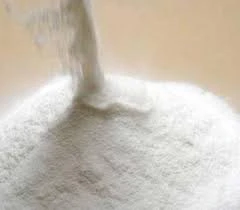Thickeners for Liquid Soap Understanding Their Importance and Usage
Liquid soap has gained immense popularity over the years, not only for its cleansing properties but also for its versatility and ease of use. One of the critical components that contribute to the quality of liquid soap is the use of thickeners. These additives play a vital role in determining the texture, consistency, and overall performance of the soap. This article explores the importance of thickeners in liquid soap production, the types available, and how they impact the final product.
The Role of Thickeners in Liquid Soap
Thickeners are substances that increase the viscosity of a liquid without significantly altering its other properties. In the context of liquid soap, thickeners serve multiple purposes
1. Enhanced Viscosity Thickeners are primarily used to achieve the desired thickness in liquid soap formulations. The viscosity of soap can significantly affect how it feels when applied, how it dispenses from a bottle, and how it lathers. A well-thickened liquid soap provides a richer, more luxurious experience for users.
2. Improved Stability Many thickeners help stabilize liquid soap formulations by preventing separation of ingredients. This stability is crucial for ensuring that the product remains homogenous throughout its shelf life.
3. Better Application Thicker soaps are easier to apply, and they reduce splashing and dripping during usage. This enhances the consumer experience by making the soap more user-friendly.
4. Controlled Dispensing With an appropriate level of viscosity, liquid soaps can be more easily controlled during dispensing, ensuring that users get just the right amount needed for effective cleansing.
Types of Thickeners Used in Liquid Soap
There are several types of thickeners commonly used in the formulation of liquid soap
. Each type comes with distinct properties and advantages1. Natural Thickeners These include substances like guar gum, xanthan gum, and locust bean gum. Natural thickeners are often favored in organic and environmentally-friendly products, as they are derived from plant sources and do not contain synthetic chemicals.
thickeners liquid soap

2. Synthetic Thickeners Ingredients such as hydroxyethyl cellulose (HEC) or polyacrylic acid are widely used synthetic thickeners. They are appreciated for their ability to provide consistent viscosity and stability. However, some consumers may prefer to avoid synthetic additives.
3. Saponification By-products In some cases, the by-products of the saponification process can act as natural thickeners. This is particularly relevant in soaps made from natural oils and fats.
4. Salt Surprisingly, common table salt can act as a thickener for liquid soap when used in appropriate quantities. It helps to increase the viscosity through a process known as “salting out.”
Considerations for Using Thickeners
When formulating liquid soap, several factors must be considered regarding thickeners
1. Compatibility Not all thickeners work well with every ingredient. It's essential to understand the chemical compatibility of thickeners with other components in the formulation to ensure optimal performance.
2. Concentration Levels The amount of thickener added can significantly impact the soap's texture. It is crucial to experiment with different concentrations to achieve the desired viscosity without compromising other properties.
3. User Preferences Today's consumers are more ingredient-savvy, and many prefer products without synthetic additives or thickeners. Understanding your target market is vital when selecting thickeners.
4. Cost-Effectiveness While some thickeners may provide excellent results, their cost can vary significantly. Manufacturers must balance quality with cost to ensure that the product remains competitively priced.
Conclusion
Thickeners are an indispensable part of liquid soap formulation, contributing to the product's overall quality and consumer satisfaction. By understanding the various types of thickeners available and their roles in enhancing viscosity, stability, and usability, manufacturers can create exceptional liquid soaps that meet consumer expectations. As the landscape of liquid soap continues to evolve, the importance of thickeners in developing effective and appealing products cannot be overstated.
-
The Application and Significance of Construction RdpNewsMay.19,2025
-
Industrial Grade HpmcNewsMay.19,2025
-
Building Coating Adhesive Building Coating Adhesive HpmcNewsMay.19,2025
-
Application Of Hpmc For Detergent For Detergent In DetergentsNewsMay.19,2025
-
Application Of Hpmc Cellulose In Cement-Based MaterialsNewsMay.19,2025
-
Application Of High Quality Hpmc For Construction In The Field Of ConstructionNewsMay.19,2025




